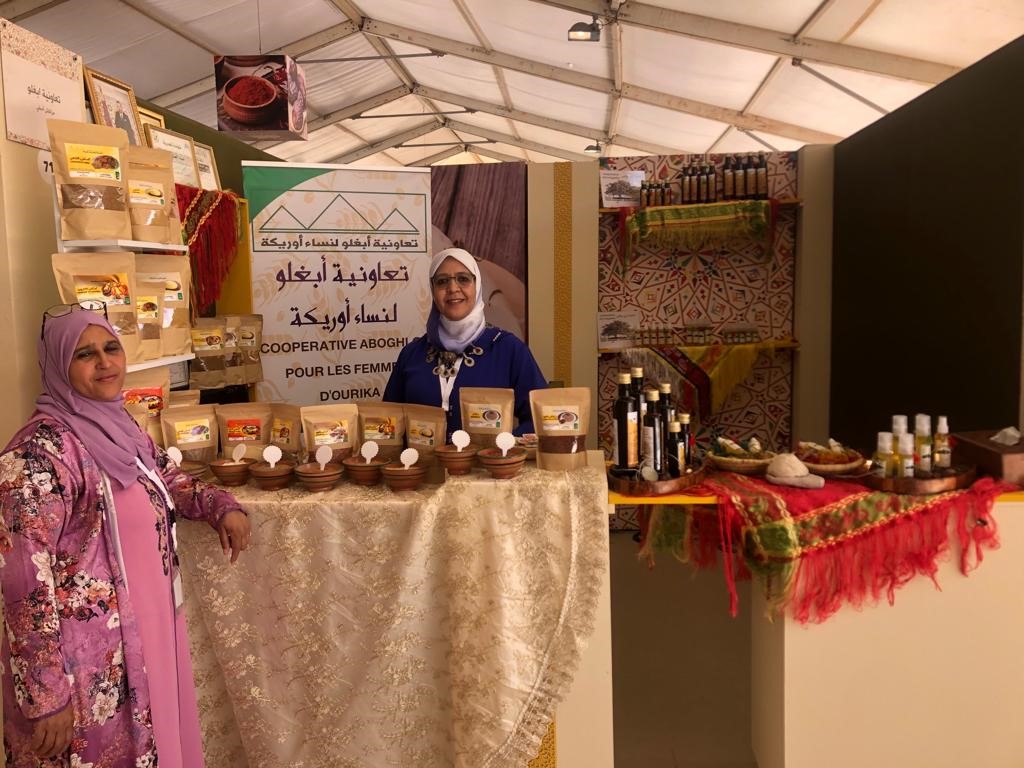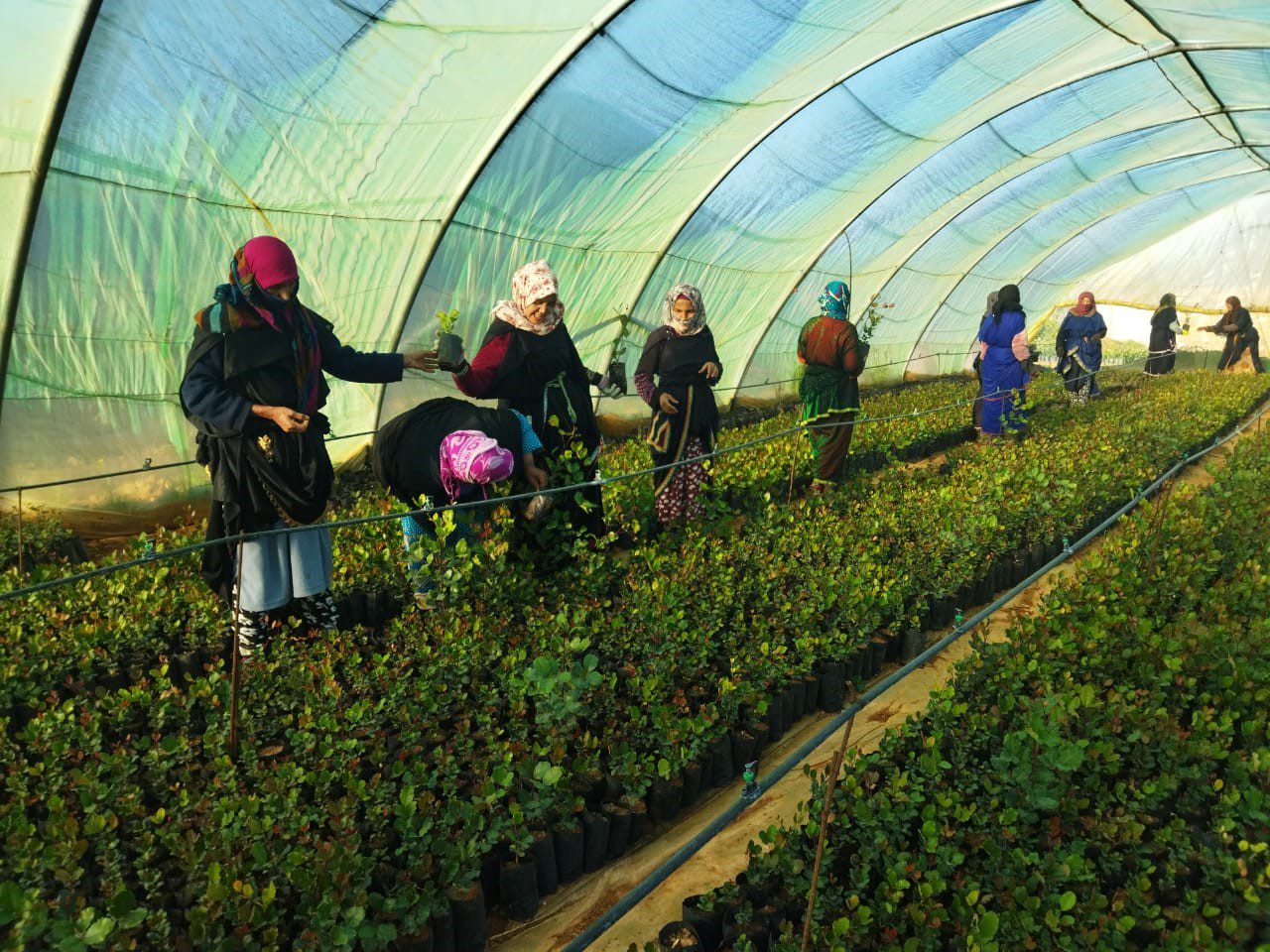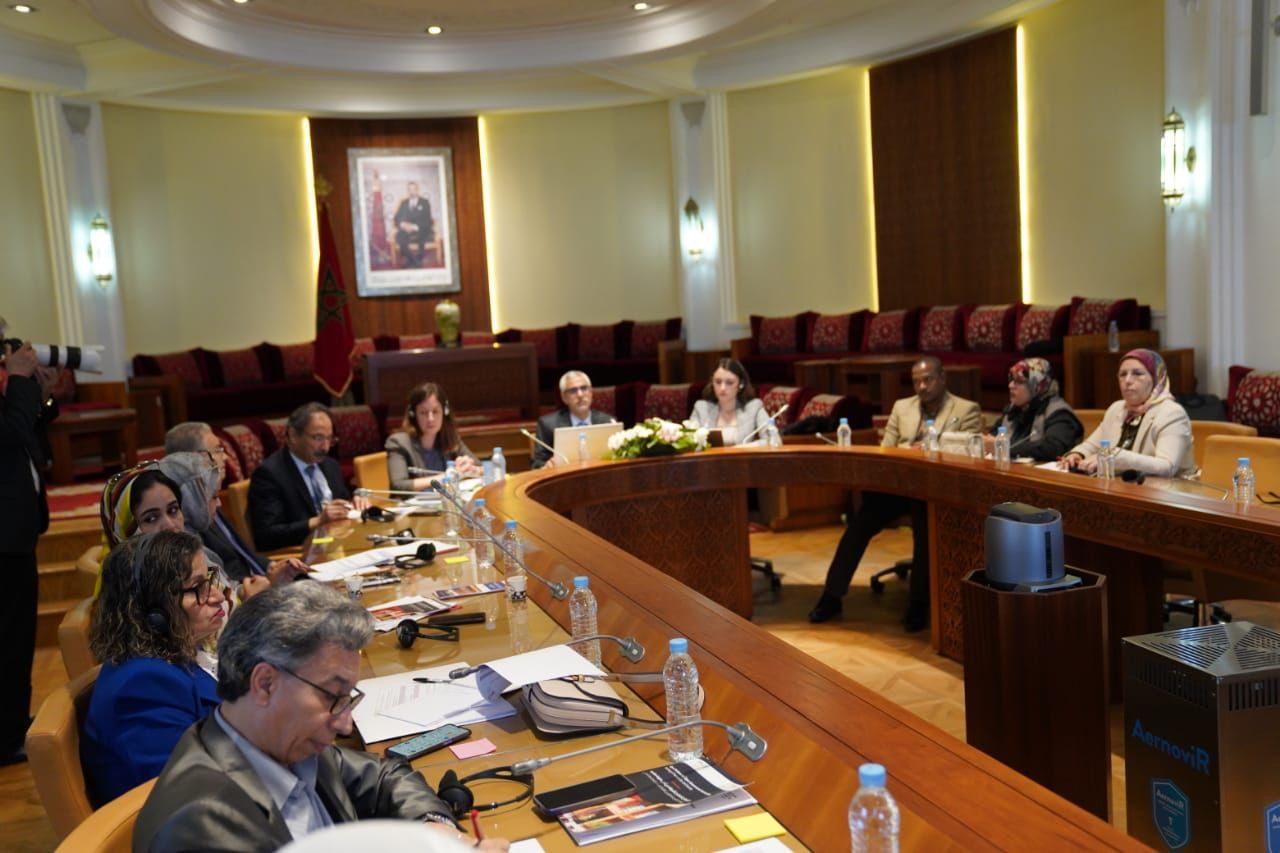Houria Chouhab
F2F Field Officer

Aboghlou’s president and assistant at the International Forum of Agriculture in Morocco
Aboghlou is a cooperative based in Ourika Valley, a rural commune in the region of Marrakech-Safi in central Morocco. It was established in 2016 by a group of 60 women who were looking to improve their financial situation. Initially, the cooperative faced many challenges, including low productivity, limited access to markets, and weak organizational structure. However, with the help of the High Atlas Foundation (HAF), the Aboghlou Cooperative has made significant progress in recent years. The cooperative has received technical assistance and training in a variety of areas, including organizational development, e-marketing strategies, and capacity building. This assistance has enabled the cooperative to improve its production techniques, increase its yields, and access new markets.
Today, Aboghlou is a thriving cooperative that produces a range of high-quality agricultural products, including barely-made couscous flavored by organic seeds and vegetables, sweets, and medicinal & aromatic herbs. The cooperative has also established strong partnerships with local and international buyers, which has helped to increase its revenues and improve the livelihoods of its members.
As a result of its success, the Aboghlou Cooperative is now participating in the International Agricultural Forum in Morocco (SIAM), which is a testament to its achievements and the impact of the HAF’s Farmer-to-Farmer program in particular. At the SIAM, the cooperative is showcasing its products and sharing its experiences with other cooperatives and farmers from Morocco and around the world. This is a great opportunity to build new partnerships, exchange knowledge and best practices, and learn about new technologies and innovations in the agricultural sector.
In conclusion, the Aboghlou Cooperative is a great example of how both the High Atlas Foundation and the Farmer-to-Farmer program are making a positive difference in the lives of agricultural cooperatives in Morocco. The program’s technical assistance and training have enabled the cooperative to improve its productivity, access new markets, and establish strong partnerships. We wish them all the best with their participation in the International Agricultural Forum, and we hope their success story will inspire other farmers and cooperatives to follow in their footsteps.





